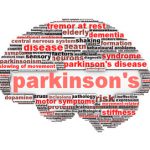 A recently published meta-analysis combines data of 26 studies to reinvestigate the association between alcohol consumption and Parkinson’s disease. The results, published in the scientific Journal of Neurology,do not show a clear association. The researchers suggest that a well-executed large cohort study could give more insight in the association.
A recently published meta-analysis combines data of 26 studies to reinvestigate the association between alcohol consumption and Parkinson’s disease. The results, published in the scientific Journal of Neurology,do not show a clear association. The researchers suggest that a well-executed large cohort study could give more insight in the association.
What is already known? Previous studies and meta-analyses have suggested that alcohol consumption overall is a protective factor for Parkinson’s disease. Results are however inconclusive and the association remains unclear.
What does this study add? This new meta-analysis again investigates the association between alcohol consumption and Parkinson’s disease.
Drinkers vs never drinkers
In total 26 case-control studies and 5 longitudinal cohort studies are included1. The case-control studies include almost 9,000 Parkinson’s disease patients and over 15,000 controls. When comparing drinkers with never drinkers, pooled data of the case-control studies show that there are more never drinkers among people with Parkinson’s disease. This is also the case for six case-control studies where men and women are separated. In the longitudinal cohort studies, including approximately 2,500 Parkinson’s disease patients and 600,000 controls, no difference in frequency of never drinkers is found between groups1.
Alcohol consumption levels
Nineteen case-control studies, including approximately 7,000 cases and 13,000 controls, are eligible to address more specific alcohol consumption levels. Pooled data show that there is a lower frequency of heavy and moderate drinkers among people with Parkinson’s disease compared to never and light drinkers. In four longitudinal cohort studies, no difference is found when looking at more specific alcohol consumption levels1.
Conclusion?
Previous studies suggest a protective effect of alcohol consumption on Parkinson’s disease. Data from the current meta-analysis show an inverse association between alcohol consumption and Parkinson’s disease, mainly by the case-control studies included. Because the mechanism behind this association is unknown, the researchers stress that the association is far from proven. The researchers also indicate that confounding factors could have influenced the data, including genetic factors. They suggest that a large cohort study with older subjects that are followed over a long period and includes multiple alcohol consumption assessments, might give better insight in the association between alcohol consumption and Parkinson’s disease1.
Parkinson’s disease
Parkinson’s disease is one of the most frequent neurodegenerative conditions; an illness that affects nerve cells in the brain that control movement. The disease develops over a long period of time and symptoms include tremor, slow movement and rigid muscles. Worldwide around 10 million people have Parkinson’s disease, most of them over 60 and men are slightly more often affected than women. The single biggest risk factor for Parkinson’s disease is age2.
Strengths
- Meta-analysis with stringent inclusion criteria.
Limitations
- Limited data for alcohol consumption levels.
- Confounding factors could have affected the association, including genetic factors.
References
1. Jiménez-Jiménez, J., Alonso-Navarro, H., García-Martín, E., and Agúndez, J. A. G. Alcohol consumption and risk for Parkinson’s disease: a systematic review and meta-analysis. Journal of Neurology, 2018.
2. European Parkinson’s Disease Association. About Parkinson’s. https://www.epda.eu.com/about-parkinsons/what-is-parkinsons/
